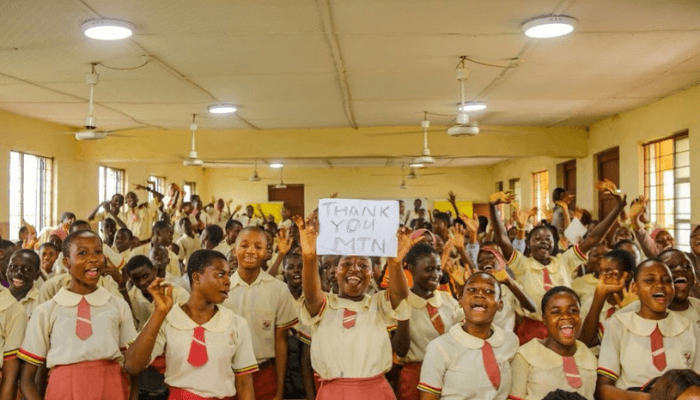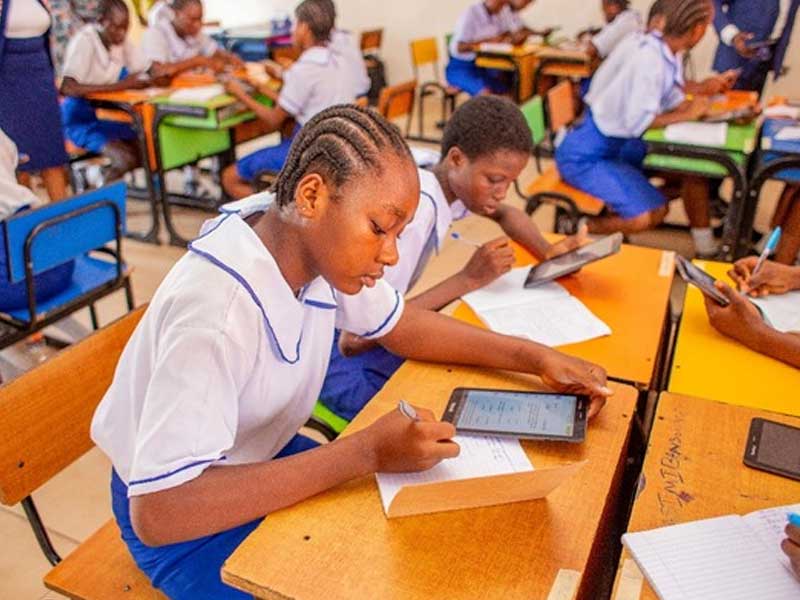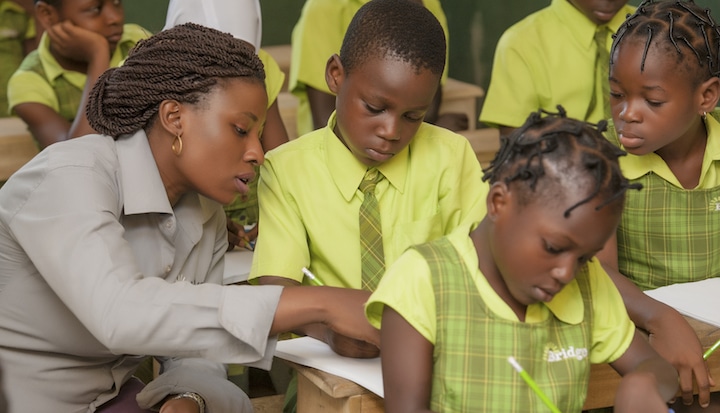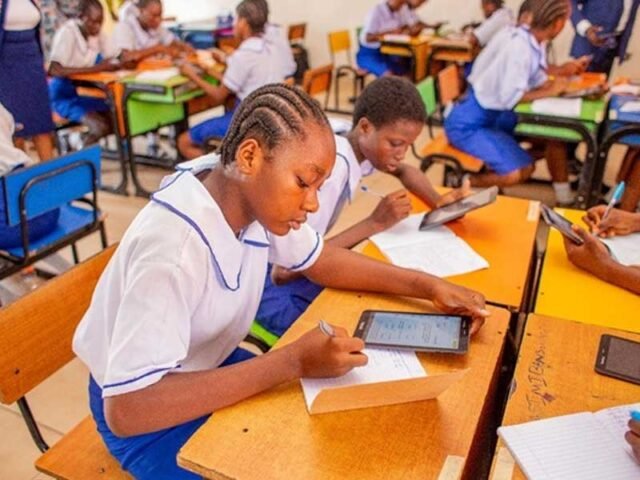Nigeria’s education landscape is witnessing a transformative moment. At the heart of this evolution is the CSI Initiative, a bold, technology-driven effort aiming to close longstanding divides in quality and access. Against a backdrop of under-resourced classrooms, unreliable infrastructure, and vast socioeconomic disparities, CSI emerges as a beacon of hope, restoring optimism and reframing the narrative of education for millions of Nigerian students.
Table of Contents

A Staggering Challenge: The Education Divide
The statistics are sobering. Unequal access to quality education is a systemic issue in Nigeria. Only an estimated 62% of Nigerians are literate, and the gap between urban and rural areas remains stark: primary school completion rates sit below 35% in rural communities, compared to over 80% in urban centres. Meanwhile, approximately 18.3 million Nigerian children are out of school across the primary and secondary levels. For Nigeria’s under-18 population—which makes up half the nation—these gaps have real, lasting consequences; digital literacy and foundational learning can determine whether a child merely survives or thrives.
Why Technology Holds the Key
Education experts are voicing a clear message: technology is essential for reform, not just optional. Digital tools and EdTech platforms offer scalable, tailored learning solutions that transcend geographic, economic, and infrastructural barriers. Successful models—from Finland’s AI literacy training to Rwanda’s smart classrooms—demonstrate how tech can democratize education even in resource-limited settings.
Nigeria has seen early digital education successes: UNICEF’s offline-compatible Nigeria Learning Platform has reached over half a million users in just over a year, delivering thousands of instructional modules in native languages. Additionally, corporate-led efforts—such as Oando Foundation’s solar-powered ICT centres and coding workshops—have begun building local capacity. Yet despite these efforts, only about 36% of Nigerian schools currently have any form of digital learning access. The digital divide remains wide, magnified by uneven internet availability and high data costs.

CSI Initiative: Vision Meets Execution
Into this challenging ecosystem steps the CSI Initiative, founded by a consortium of educators, technologists, and philanthropists committed to reimagining what equitable education can look like. Here’s how it’s making a difference:
- Targeted Connectivity & Devices
CSI bypasses unreliable grid power by deploying solar-powered learning hubs in underserved areas. These hubs include tablets or laptops loaded with localised curriculum content and equipped for both online and offline use, crucial given erratic internet access. - Adaptive Learning Platforms
The initiative’s software uses AI-driven diagnostics to pinpoint student strengths and gaps, then adjusts content in real time, much like other adaptive learning tools used globally. This personalised approach allows for accelerated learning and more meaningful teacher-student interactions. - Empowering Teachers with Technology
Recognising that teachers drive education quality, CSI offers extensive training in tech-based teaching, classroom data collection, and digital pedagogy. This mirrors strategies used by Oando Foundation and Mastercard’s EdTech programs. - Data for Decisions
Hubs collect anonymised data on student engagement, performance trends, and resource effectiveness. This empowers district and state education officials to take evidence-based action. - Local Engagement & Ownership
Community-led oversight committees guide hub location, content selection, and sustainability practices. CSI avoids top-down implementation, opting instead for collaborative governance.
Early Impact: Changing Lives and Classrooms
Several pilot hubs in Benue and Edo states have yielded impressive results within the first year:
- Literacy & Numeracy: Average performance on national exam predictors rose by 25% in participating schools.
- Digital Fluency: 60% of students now competently operate learning devices—up from 15% before engagement.
- Teacher Growth: Over 200 teachers have completed certified upskilling programs, many previously lacking basic ICT training.
- Attendance & Retention: School attendance in hub schools increased by 18%, with fewer dropouts in communities with CSI presence.
From users’ perspectives, the impact is clear. A UNCEF-supported primary school teacher in Benin City shared that digital tools have made lessons more engaging and helped her track each student’s progress more effectively.
Navigating Persistent Barriers
CSI doesn’t underestimate the obstacles:
- Connectivity Hurdles: Rural broadband remains unreliable, with some hubs relying on offline syncing. CSI advocates for telecom partnerships to expand reach.
- Maintenance Gaps: Hardware can fail without local maintenance capability. CSI trains local IT champions and establishes regional repair hubs.
- Cost Constraints: Long-term sustainability is challenging, as device and data cost reductions are needed. CSI leverages subsidy models and public-private partnerships.
- Curriculum Integration: Ensuring new tools align with national learning standards is complex. CSI works closely with NERDC to co-develop approved content.
Learning from Global Models
CSI’s strategy is informed by successful international efforts:
- UNICEF’s Nigeria Learning Platform: Demonstrated the value of offline solutions in low-connectivity zones.
- OECD & Finland AI initiatives: Provided vision for adapting pedagogy in the AI era.
- Rwanda & India: Showed how digital infrastructure and global-local partnerships can scale affordable digital classrooms.
Broader Implications for Nigeria’s Future
An education system bolstered by CSI could help address some of Nigeria’s most pressing challenges:
- Bridge Digital & Learning Poverty: With digital and foundational literacy, boosting economic mobility.
- Reduce Skills Mismatch: Early exposure to tech prepares students for today’s workforce.
- Catalyse Teacher Professionalism: National policies—like the NITDA Digital Literacy for All program—could uplift entire regions.
- Encourage Public-Private Synergy: The private sector’s success, such as Mastercard-backed EdTech efforts, highlights what coordinated partnerships can achieve.
Policy Momentum & National Strategy
Nigeria’s policymakers are responding. The federal government aims for 70% national digital literacy by 2027—a goal echoed by NITDA’s flagship literacy campaign. Provincial governments are reviewing procurement policies for devices and curricula, while regulatory incentives are emerging to attract investment into digital schooling.
CSI aligns seamlessly with these policy frameworks:
- It supports national digital inclusion targets.
- It enhances teacher competency through scalable, accredited training.
- It builds the infrastructure that can serve as a launchpad for broader digital schooling efforts.
Looking Ahead: Scaling Up
Phase II of CSI includes expansion plans across Nigeria’s six geopolitical zones. The goals are ambitious:
- 1,000 Solar-Connected Learning Hubs: Establishing at least one per rural local government area.
- 30,000 Educator Certificates: Across foundational digital and pedagogical skills.
- 5 Million Cumulative Student Reach: Within five years.
To achieve this, CSI is exploring:
- Telecom Collaborations: For zero-rated educational data.
- Donor & Development Financing: From multilateral agencies and philanthropies.
- CSR Engagement: Encouraging local private sectors to invest, inspired by Oando Foundation-style ICT programmes.
Community Voices: The Human Face of Change
In Edo State, parents report remarkable shifts. One mother said:
“Before CSI, my daughter struggled with maths. Now, she works on a tablet, practices in English and her local language, and no longer fears numbers.”
Teachers echo this enthusiasm—a new generation of confident, technologically adept educators is emerging.
A Blueprint for Sustainable Progress
CSI is more than a project—it’s a replicable, sustainable model for education reform in challenging environments. By prioritising connectivity, adaptive learning, teacher development, and local buy-in, CSI is helping Nigeria transition from traditional schooling to a digital-first model, without leaving anyone behind.

Conclusion: A New Dawn for Learning in Nigeria
The CSI Initiative Tackles Nigeria’s Education Divide is rewriting the educational narrative. It demonstrates how thoughtful integration of technology, pedagogy, and policy can create scalable improvements in learning outcomes. As Nigeria marches forward, inclusive, technology-enabled education shouldn’t just be aspirational—it must be foundational.
CSI is showing us the way. For students in remote villages and city schools alike, this is more than opportunity—it’s empowerment. And for Nigeria, it’s the dawn of a learning revolution.
Join Our Social Media Channels:
WhatsApp: NaijaEyes
Facebook: NaijaEyes
Twitter: NaijaEyes
Instagram: NaijaEyes
TikTok: NaijaEyes
READ THE LATEST EDUCATION NEWS








































